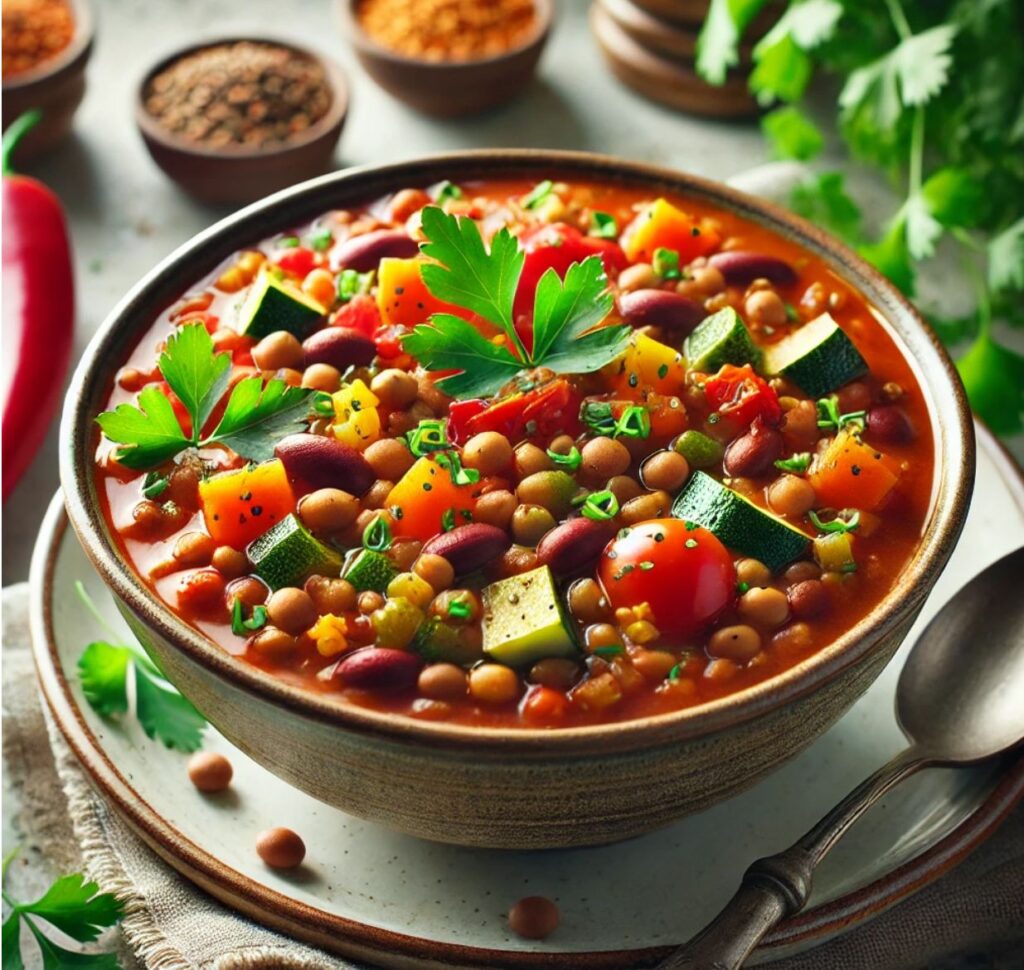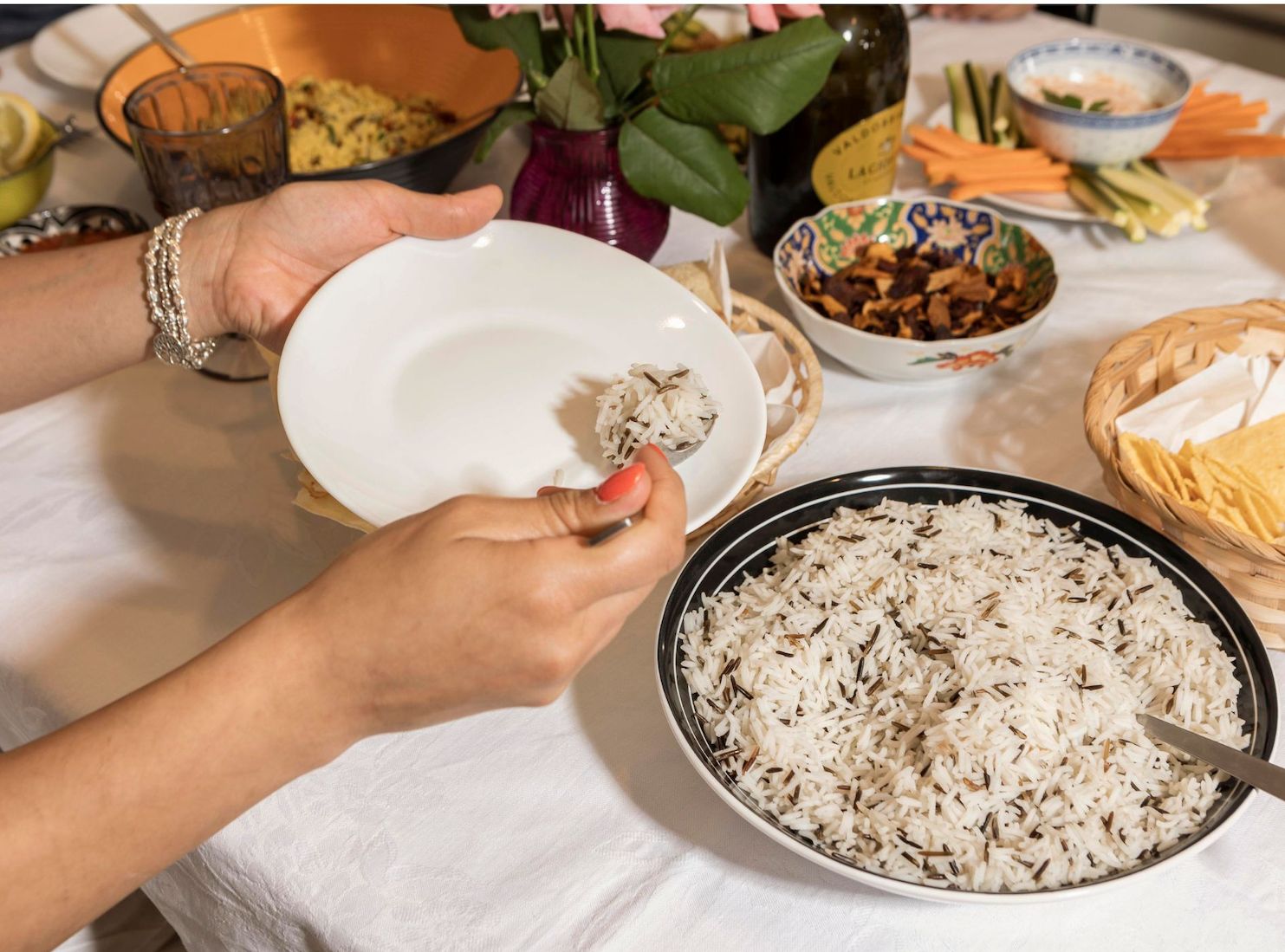By Joan Marie Gagnon
We hear it all the time: eat more plants; it’s good for you! But did you know that a plant-rich diet isn’t just good for your body—it’s also a powerful way to help clean up the planet? By swapping out some animal-based meals for plant-powered ones, you’re reducing pollution and supporting a healthier environment. Here’s a closer look at how munching on those greens and beans can make the world a little greener, too. And keep an eye out for a delicious, eco-friendly recipe at the end!
1. Cutting Down on Air Pollution with Every Bite
When it comes to greenhouse gases, livestock farms are, well, pretty gassy! Cows, sheep, and other animals release methane, a potent greenhouse gas, into the atmosphere through their burps and manure. Meanwhile, growing plants to feed ourselves directly generates far less pollution. By eating more plants, you’re helping reduce some of the air pollution contributing to climate change. It’s a small change on your plate with significant effects in the air!
2. Keeping Our Waters Cleaner
It’s easy to forget that our food choices affect rivers, lakes, and oceans, but animal farming is a huge factor here. Waste from livestock can seep into water supplies, leading to excessive algae growth that harms and kills fish and other aquatic life. Switching to more plant-based meals means less pressure on water resources, less pollution, and more thriving underwater ecosystems.
3. Protecting Our Soil for Future Generations
Did you know that meat-heavy diets contribute to land degradation? Animals need a lot of space, and the soil often pays the price. Livestock farming can lead to soil erosion and nutrient depletion. Plants, on the other hand, generally require less land, and sustainable plant farming can actually improve soil quality. It’s a win-win for your plate and the planet.
4. Saving Water with Every Meal
We all know water is precious, but animal farming is incredibly water-intensive! Raising livestock (and growing their food) takes much more water than growing plants for direct human consumption. By choosing a hearty veggie stew or bean salad over a steak, you’re helping conserve our planet’s freshwater—a critical resource for communities facing water shortages.
5. Reducing Harmful Chemicals
Pesticides and fertilizers from industrial farms can end up polluting rivers and streams. Animal agriculture doubles down on this by using these chemicals on crops grown for animal feed. Plants that go directly to us require fewer chemicals overall, especially when grown sustainably. So, by picking plant-rich meals, you’re choosing cleaner water and healthier ecosystems.
6. Supporting Smart, Sustainable Farming
Eating more plants supports sustainable farming practices like crop rotation and organic farming, which are gentler on the land. These methods help farmers produce nutritious food without polluting the soil, air, and water. By choosing plant-based, you’re supporting farmers who care for the planet, too.
The Big Takeaway
Switching to a plant-rich diet isn’t just a health move—it’s an earth-friendly move. Less pollution, cleaner air and water, and healthier soil? Sounds like a great deal! Whenever you choose plants over animal-based foods, you give back to the planet. So pile up that salad, dig into a veggie chili, and know you’re making a positive impact with every bite.
Try a Pollution-Busting Plant-Based Recipe: Hearty Lentil & Veggie Chili – Warm, filling, and packed with plant-based protein, this chili is as eco-friendly as it is tasty!

Plant-Based Recipe: Lentil and Veggie Chili
**Ingredients:**
– 1 cup dry green or brown lentils, rinsed
– 1 tbsp olive oil
– 1 large onion, diced
– 3 cloves garlic, minced
– 1 bell pepper (any color), chopped
– 2 carrots, diced
– 1 zucchini, chopped
– 1 can (15 oz) diced tomatoes
– 1 can (15 oz) kidney beans, drained and rinsed
– 4 cups vegetable broth
– 2 tsp chili powder
– 1 tsp cumin
– 1/2 tsp smoked paprika
– Salt and pepper, to taste
– Fresh cilantro for garnish
**Instructions:**
- In a large pot, heat olive oil over medium heat. Add onion and garlic, and sauté until softened, about 3 minutes.
- Add bell pepper, carrots, and zucchini. Cook for 5 minutes until vegetables start to soften.
- Stir in the lentils, diced tomatoes, kidney beans, vegetable broth, and spices.
- Bring the mixture to a boil, then reduce heat and let simmer for 30–40 minutes, or until lentils are tender.
- Season with salt and pepper to taste. Serve warm, garnished with fresh cilantro if desired.
About the Author
Joan Marie Gagnon is an active member of the Foxboro, MA, USA Rotary Club and ESRAG’s Plant-Rich Diet Task Force. Passionate about whole-food, plant-based lifestyles, she co-founded Veg Your Way—Health At Any Age. Joan is a certified plant-based coach and ambassador through the Food Revolution Network and holds a Plant-Based Nutrition certificate from eCornell.
The ESRAG Plant-Rich Diet Task Force helps individuals, clubs, and districts reduce their environmental impact and improve health through better dietary choices. Visit our webpage for resources, email us at [email protected], or like us on Facebook or Instagram.
Or take our 15-Day Plant-Rich Diet Challenge.

